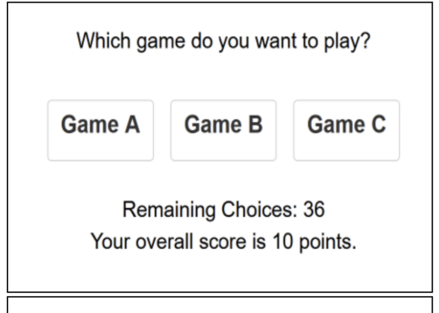Our RLDM abstract got accepted!
Our article on ''What to learn next? Aligning gamification rewards to long-term goals using reinforcement learning'' has been accepted at RLDM 2022. Congratulations Reena, Lovis, Victoria, and Falk!
- 21 March 2022
- Rationality Enhancement
Nowadays, more people can access digital educational resources than ever before. However, access alone is often not sufficient for learners to fulfil their learning goals. To support motivation, learning environments are often gamified, meaning that they offer points for interacting with them. But gamification can add to learners’ tendencies to choose learning activities in a short-sighted manner. An example for a short-sighted choice bias is the preference for an easy task offering a quick sense of accomplishment (and in gamified environments often a quick accumulation of points) over a harder task offering to make real progress. The concept of optimal brain points demonstrates that methods from the field of reinforcement learning, specifically reward shaping, allow us to align short-term rewards for learning choices with their expected long-term benefit in a learning context. Building on that work, we here present a scalable approach to supporting self-directed learning in digital learning environments applicable to real-world educational games. It can motivate learners to choose the learning activities that are most beneficial for them in the long run. This is achieved by incentivizing each learning activity in a way that reflects how much progress can be made by completing it and how thatprogress relates to their learning goal. Specifically, the approach entails modelling how learners choose between learning activities as a Markov Decision Process and applying methods from reinforcement learning to compute which learning choices optimize the learners progress based on their current knowledge. We specify how our developed method can be applied to the English-learning App “Dawn of Civilisation”. We further present the first evaluation of the approach in a controlled online experiment with a simplified learning task, which showed that the derived incentives can significantly improve both learners’ choice behaviour and their learning outcomes.
education; self-directed learning; reward shaping; optimal gamification; decision making; incentives





